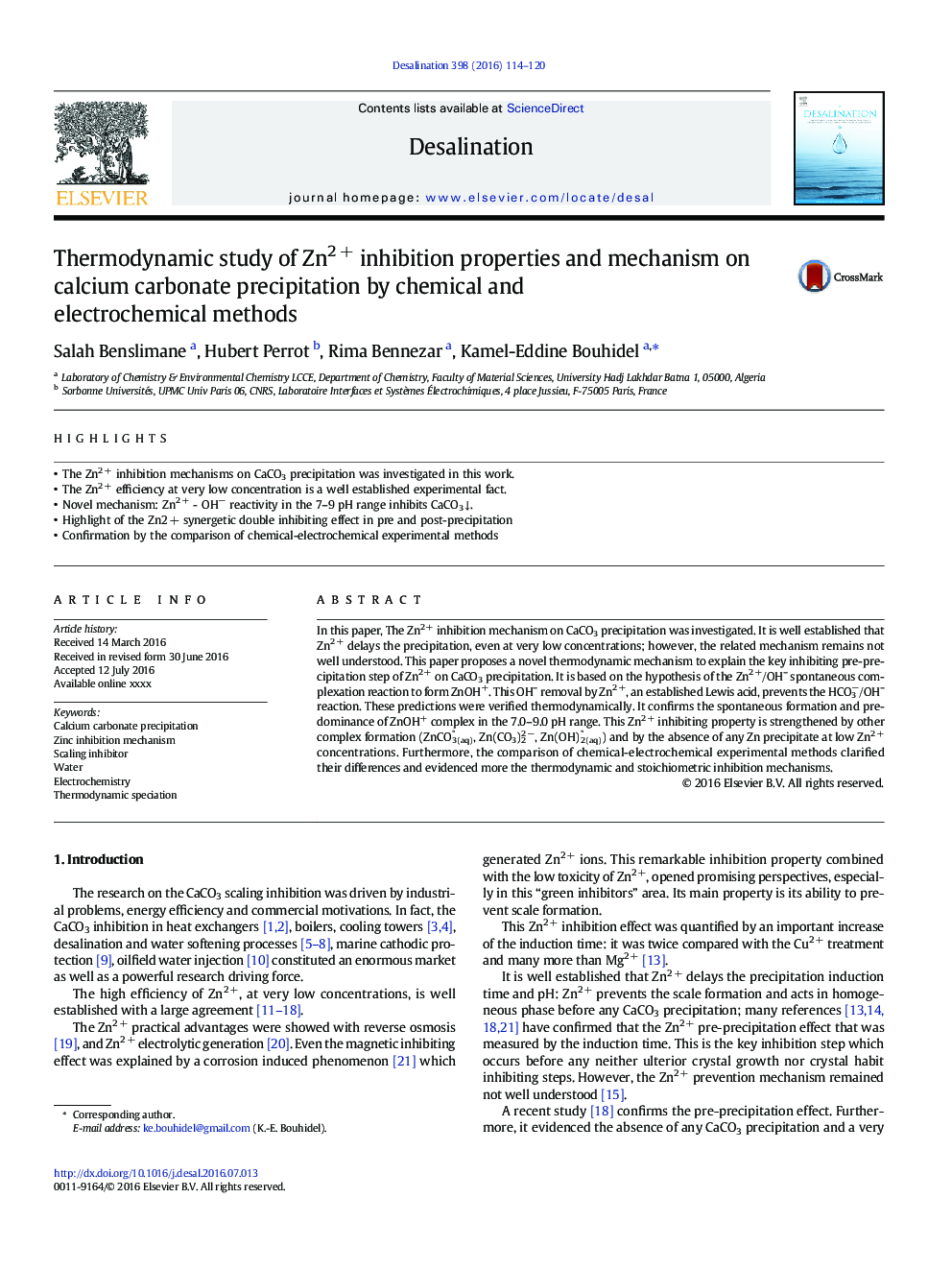| Article ID | Journal | Published Year | Pages | File Type |
|---|---|---|---|---|
| 622697 | Desalination | 2016 | 7 Pages |
•The Zn2 + inhibition mechanisms on CaCO3 precipitation was investigated in this work.•The Zn2 + efficiency at very low concentration is a well established experimental fact.•Novel mechanism: Zn2 + - OH− reactivity in the 7–9 pH range inhibits CaCO3 ↓.•Highlight of the Zn2 + synergetic double inhibiting effect in pre and post-precipitation•Confirmation by the comparison of chemical-electrochemical experimental methods
In this paper, The Zn2 + inhibition mechanism on CaCO3 precipitation was investigated. It is well established that Zn2 + delays the precipitation, even at very low concentrations; however, the related mechanism remains not well understood. This paper proposes a novel thermodynamic mechanism to explain the key inhibiting pre-precipitation step of Zn2 + on CaCO3 precipitation. It is based on the hypothesis of the Zn2 +/OH– spontaneous complexation reaction to form ZnOH+. This OH– removal by Zn2 +, an established Lewis acid, prevents the HCO3−/OH– reaction. These predictions were verified thermodynamically. It confirms the spontaneous formation and predominance of ZnOH+ complex in the 7.0–9.0 pH range. This Zn2 + inhibiting property is strengthened by other complex formation (ZnCO3(aq)°, Zn(CO3)22 −, Zn(OH)2(aq)°) and by the absence of any Zn precipitate at low Zn2 + concentrations. Furthermore, the comparison of chemical-electrochemical experimental methods clarified their differences and evidenced more the thermodynamic and stoichiometric inhibition mechanisms.
